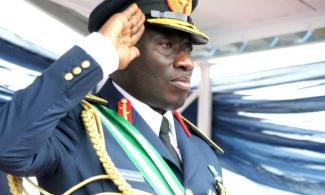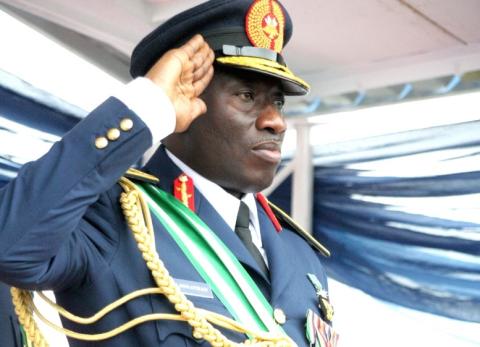
The president, Goodluck Jonathan, is a civilian and he is by no means a military official; not by overt training nor subtle affiliation. He is a civilian, and without offence, a 'bloody' one elected under a purely democratic principles to take charge of the nation's governance and such he must present at all times. His continuous recourse to being arrayed in the military garb smacks of misplaced identity.
The inhabiting elements of a society are codified by the streaking identity they share in their inalienable rights as citizens. That, on its own, remains a long indisputable fact in so far the entity is giving credence by subsisting guiding provisions of such society.

The inherent nominal similarity which citizens have, by virtue of their memberships in society, is circumscribed by the itinerant classification into the two existing wider spectra; of civil and military following.
For every country, the agile, combat-ready force is found in its military; those persons who are uniformed and armed and who are purposely involved in securing the borders from external threats and instilling internal stability.
They are the ones on the streets, at the borders, and other sensitive areas, ensuring that situations are in order even as the civilian community is heavily engrossed in day-to-day business at various workplaces. They are also the ones awake at the dead of the night ensuring that the vicissitudes are serene even as the civilian community navigates in the comfort of the nights through their jolly dreamlands.
The military, no doubt, is what must respond with the speed of light to alerts of emergencies; and pull the strings at war-fronts. If necessary, members of the military make the ultimate sacrifice of death in response to the national call of honour.
It is these set of personnel, who in their gallantry paid the supreme price that the day of appreciation as epitomized by the Remembrance Day is instituted. Each year-15th January, their memories and efforts of selfless patriotism are celebrated.
The civilian community, on the other hand, forms the bulk of every nation. It is the constituent part of its entire population, who, however, is unarmed and unskilled in the military sophistry of martial arts. They are the ones who are majorly involved in the daily life-processes of ensuring economic sustainability, in seeing to administrative progression and keeping the country politicallly active and socially viable.
They are the spouses of the military personnel, they could be their children. These civilians could be the food vendors, account managers, lawyers, or the health and other social service providers of these military officers.
Understandably, the civilian segment of a nation represents the home-support and the life-wire of its patrolling military; they are the ones that ensure the effective working of the administrative machinery and they do not fall short of being highly responsible for the health and nutritional conveniences on which they ably rely while they are engaged in their prominent and onerous duty of maintaining security and defending the nation's territory from aggressive forces.
The men of mufti are the heart-beats of the military at home. They civilians are the essence of their exhibited strength.
In aforestated, we would appreciate the descriptive dissimilarities. No doubt, the military are the most exposed to risks, dangers and death in any part of the world. They are unarguably the 'strong men' of any land, whose claim of strength and will could not be challenged by 'bloody' civilians. Nevertheless, the civilian nominal is more subsuming; for every armed man was first a civilian before a military.
And for convenience, these two classified bounds of the citizenry are differentiated visibly in appearance as they purely are antagonistic in their commitments and responses to national call.
It's for this reason that the constant decoration of the president at each epochal military ceremony, especially of January 15th, is viewed with disdain; a misrepresentation of personality and an inane show of camouflage.
The president, Goodluck Jonathan, is a civilian and he is by no means a military official; not by overt training nor subtle affiliation. He is a civilian, and without offence, a 'bloody' one elected under a purely democratic principles to take charge of the nation's governance and such he must present at all times.
His continuous recourse to being arrayed in the military garb smacks of misplaced identity. It depicts him in the light of what he is not essentially. And more sadly, it reminds us all of the sordid eras when the men of uniform held sway of government apparatus and brandished their colourful garb disflavored by their ominous dispositions.
Does it not bring to a doleful reminiscence the long years of brazen brutality and exacerbated servitude when the dictatorial men-of-the-gun ensconced in the power-seat dominated the gallery to demand unyielding obedience? It does to me.
Kingsley Ahanonu writes from Owerri.